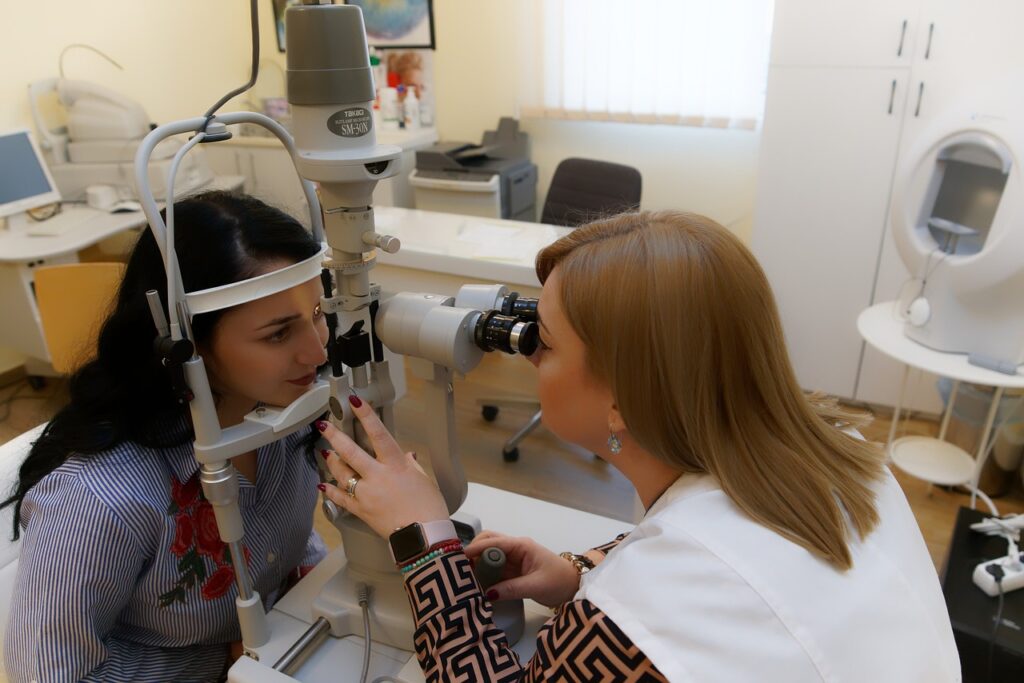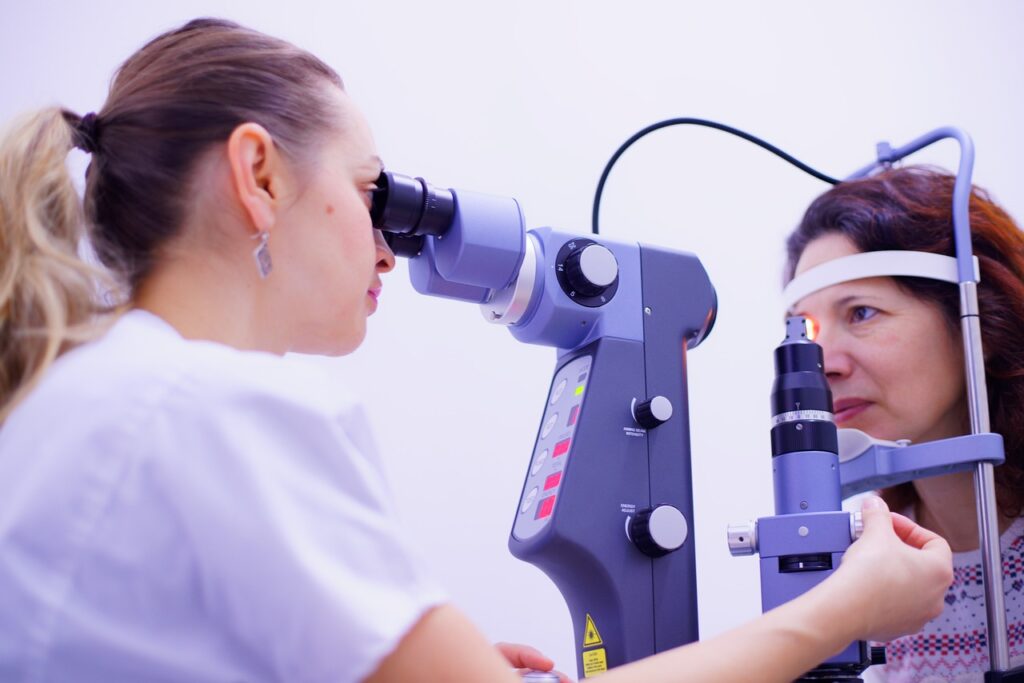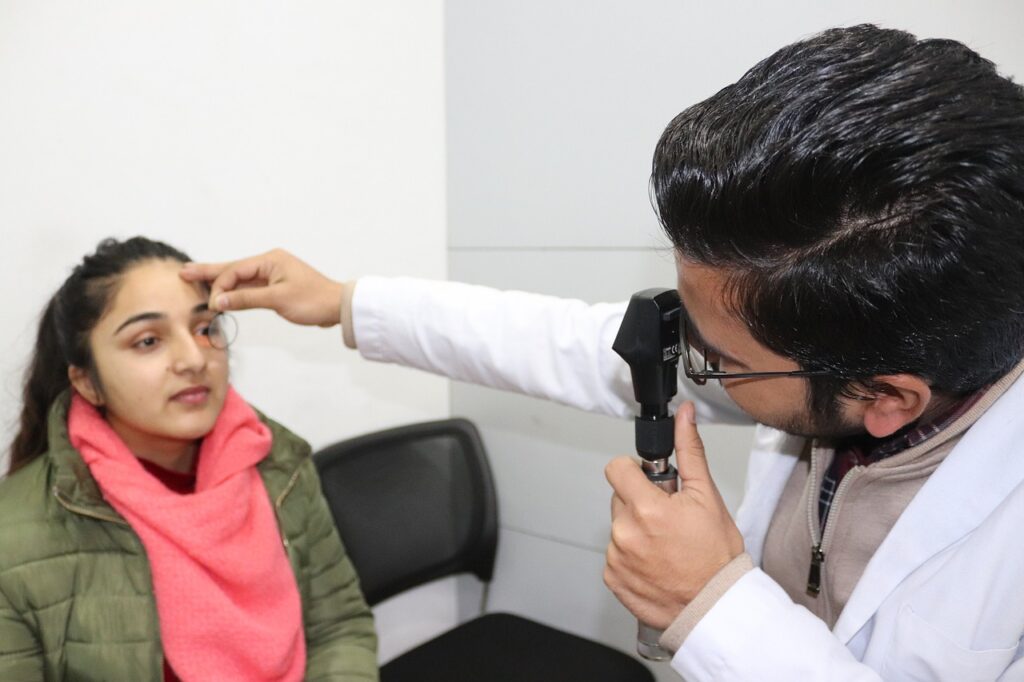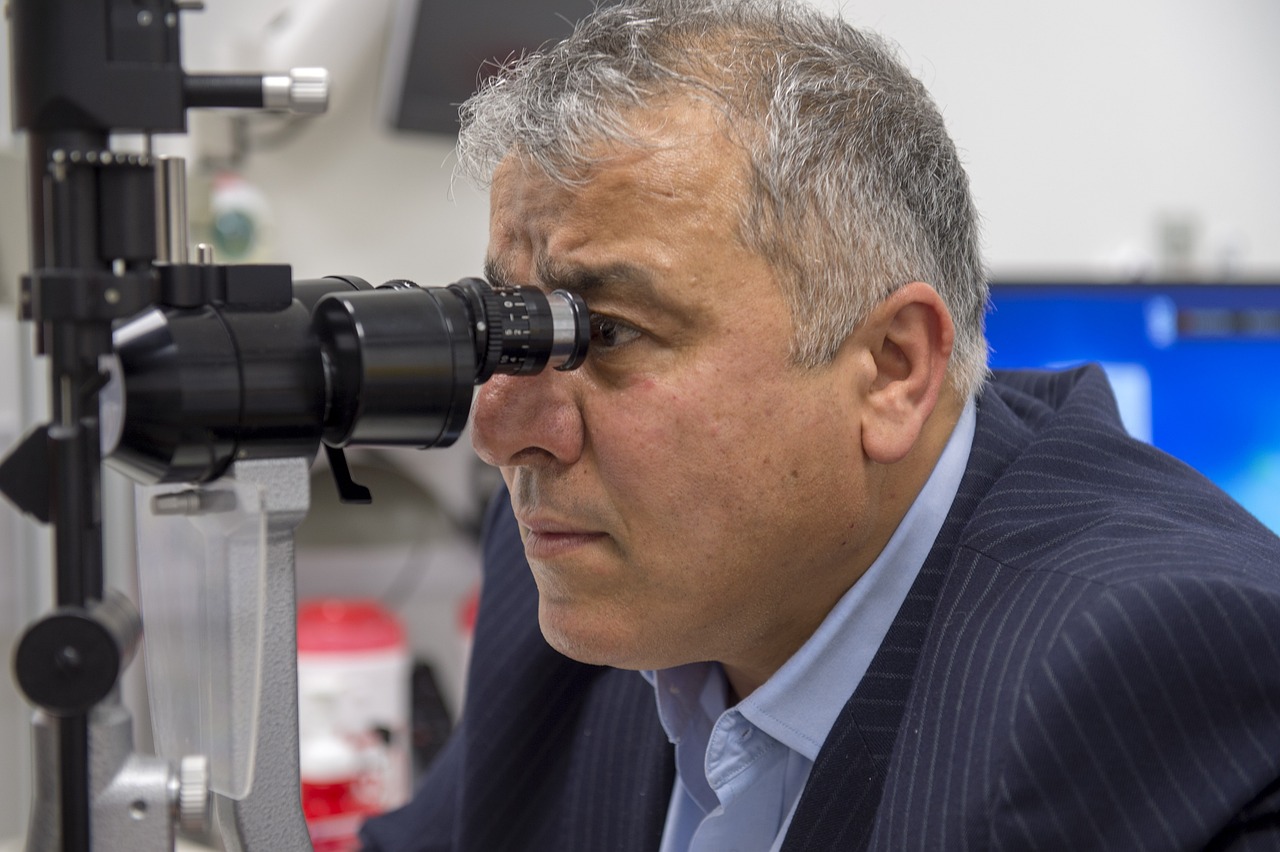When it comes to eye care, many people are familiar with the roles of ophthalmologists and opticians, but what about optometrists? An optometrist doctor plays a vital role in maintaining and improving your vision. Whether you need a routine eye exam, a new prescription for eyeglasses, or treatment for certain eye conditions, optometrists are there to help.
In this blog post, we’ll explain who an optometrist doctor is, what they do, how they differ from other eye care professionals, and why regular visits are essential for eye health. Whether you’re visiting for the first time or want to learn more, you’ll find all the information you need.
What is an Optometrist Doctor?
An optometrist doctor is a healthcare professional who specializes in examining, diagnosing, and treating vision problems and eye diseases. They hold a Doctor of Optometry (OD) degree and are trained to provide primary eye care services. Optometrists are licensed to perform eye exams, prescribe corrective lenses, and detect various eye conditions such as glaucoma, cataracts, and diabetic retinopathy.
While optometrists are not medical doctors (MDs), they play a crucial role in managing and maintaining your overall eye health. They are trained to detect conditions that may affect your vision and can refer patients to ophthalmologists (MDs) or other specialists for more advanced treatment if necessary.

How Does an Optometrist Doctor Differ from an Ophthalmologist?
It’s easy to confuse optometrists with ophthalmologists, but they are distinct professions with different roles in eye care. Both optometrists and ophthalmologists specialize in eye health, but their levels of training and the types of services they provide vary.
An optometrist doctor focuses primarily on vision care and eye health management. They are trained to perform eye exams, prescribe glasses or contact lenses, and manage conditions like nearsightedness, farsightedness, and astigmatism. Optometrists can also diagnose and treat some eye diseases, such as glaucoma and dry eye syndrome. They typically do not perform surgeries, although they can offer some treatments, like prescribing medications for certain eye conditions.
On the other hand, an ophthalmologist is a medical doctor who specializes in diagnosing and treating a broader range of eye conditions, including those that may require surgery. Ophthalmologists are trained to perform surgeries like cataract removal, LASIK eye surgery, and retinal surgeries. They can also treat more complex medical conditions that affect the eyes, such as macular degeneration, diabetic eye disease, and eye cancers.
While both professionals contribute to eye health, the key difference is that optometrists focus on vision care and the correction of visual impairments, while ophthalmologists are medical doctors who handle more complex conditions, including surgical interventions.
What Services Does an Optometrist Doctor Provide?
An optometrist doctor provides a wide range of services designed to help maintain good eye health. From vision testing to disease management, optometrists are equipped to handle many aspects of eye care. Here are some of the most common services provided by optometrists:
Eye Exams: One of the primary services of an optometrist doctor is conducting comprehensive eye exams. These exams assess the clarity of your vision and check for common conditions like short-sightedness, farsightedness, astigmatism, and presbyopia (age-related farsightedness). An optometrist will use a series of tests to evaluate how well you can see at different distances and under different conditions.
Prescription for Glasses and Contact Lenses: Based on the results of your eye exam, an optometrist can prescribe corrective lenses (glasses or contacts) to improve your vision. If you already wear prescription glasses or contacts, they will monitor your prescription to ensure it’s up to date and appropriate for your needs.
Management of Eye Diseases: Optometrists are trained to detect and manage a variety of eye diseases. They can diagnose conditions like glaucoma, macular degeneration, cataracts, and diabetic retinopathy, and provide treatment options or refer you to an ophthalmologist if surgery is needed.
Prevention and Education: An optometrist doctor can also provide advice on how to protect your eyes from damage, including recommending UV protection, tips for managing screen time, and dietary advice to support eye health. Additionally, they can monitor your eyes for early signs of conditions that could lead to vision loss, allowing for early intervention.
Vision Therapy: Some optometrists also provide specialized vision therapy for patients with specific eye coordination issues, like strabismus (crossed eyes) or amblyopia (Glasses Fix a Lazy Eye). These therapies involve exercises and techniques designed to improve eye movement and visual processing.

Why Should You See an Optometrist Doctor?
Regular visits to an optometrist are crucial for maintaining eye health. Even if you don’t have noticeable vision issues, a comprehensive eye exam can catch problems before symptoms appear. Early detection helps prevent serious eye conditions and protect your vision.
Here are some reasons why you should see an optometrist regularly:
Early Detection of Eye Diseases: Many serious eye conditions, like glaucoma and macular degeneration, develop slowly and don’t show symptoms until they’ve progressed significantly. Regular eye exams with an optometrist can catch these issues early, when treatment is most effective.
Vision Correction: If you have trouble seeing clearly, an optometrist can help by providing a prescription for glasses or contact lenses. Even if you don’t need prescription lenses, regular exams ensure your eyes are healthy and functioning properly.
Screening for Other Health Conditions: Did you know that an eye exam can reveal signs of other health problems, like high blood pressure, eye heaviness or diabetes? Optometrists are trained to spot clues about your overall health during a thorough eye exam, which could lead to early diagnoses and treatment.
Preventing Vision Problems in Children: Kids often don’t know how to express when they’re having trouble seeing, so it’s important for parents to schedule regular eye exams for their children. Optometrists can identify issues like amblyopia or strabismus early, helping to avoid future complications.

Conclusion
An optometrist plays a key role in maintaining eye health and ensuring clear, comfortable vision. They provide routine exams, diagnose and manage eye diseases, offering essential services for your overall well-being. While not medical doctors, their expertise is invaluable in eye care.
If you’ve never seen an optometrist or it’s been a while since your last exam, consider scheduling an appointment today. Regular check-ups can help prevent vision problems and detect eye diseases, such as determining the level of astigmatism that requires glasses and treatment, before they become serious issues. Plus, with their expertise in vision correction and eye care, an optometrist can ensure your eyes stay healthy for years to come.
Have you had an eye exam recently? What was your experience with your optometrist doctor? Leave a comment below—we’d love to hear from you!
For more information on eye care and to find an optometrist near you, visit us at Optics4Less.

